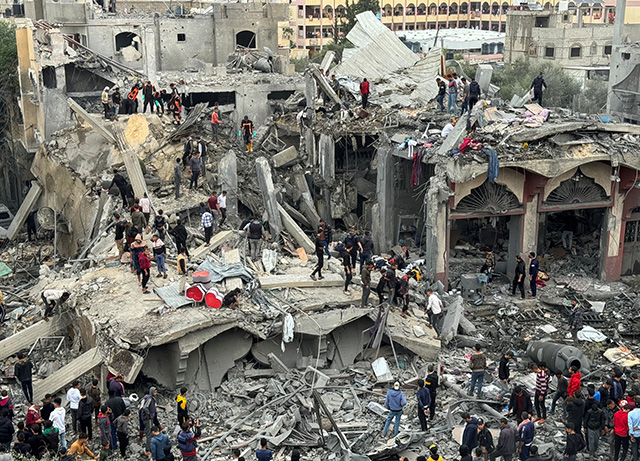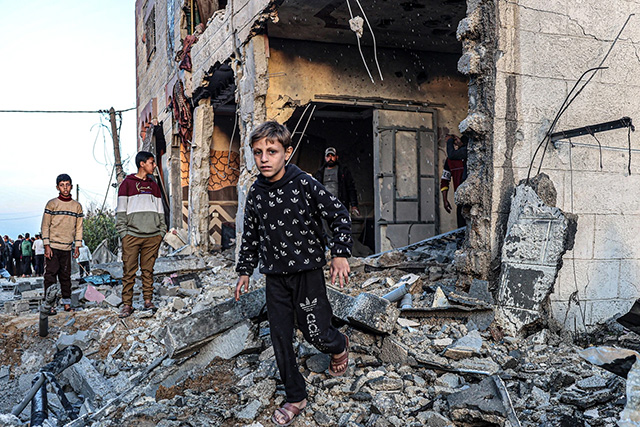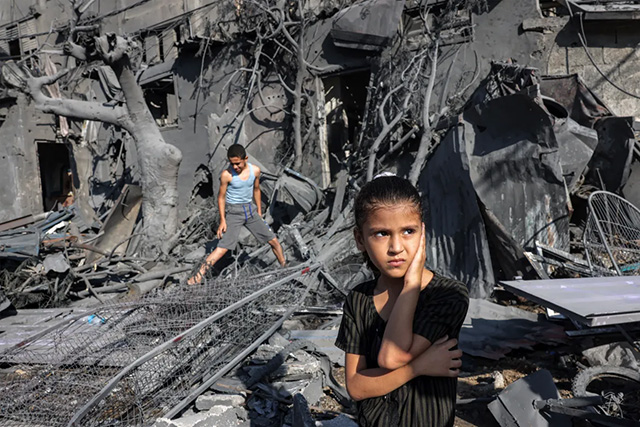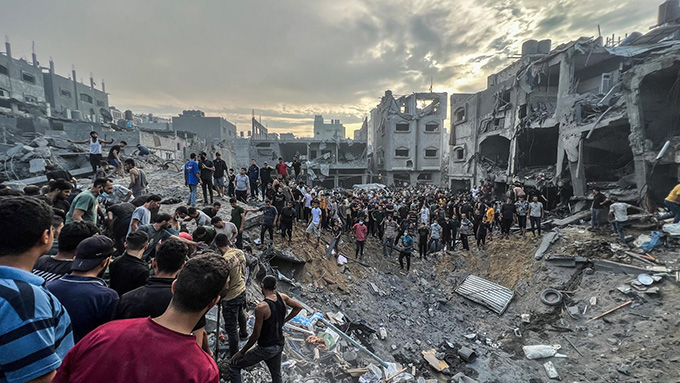Israel bombs Rafah city in the Gaza Strip witnessed another wave of Israeli airstrikes last Sunday, resulting in significant casualties, many of whom were children. This has further exacerbated the already tense situation in the region.

Airstrikes in Rafah
On the night leading into Sunday, Israeli forces launched a severe airstrike on Rafah, the southernmost part of the Gaza Strip, claiming the lives of 22 people, including 18 children. This attack came hours after the U.S. Congress approved a substantial increase in military aid to Israel.
Response and International Reactions
The global community has reacted with heightened concern following these events. Israeli Prime Minister Benjamin Netanyahu stated that the operations would intensify, both militarily and politically, to combat Hamas and secure the release of hostages.
Military and Political Strategies
Israel’s strategy involves extensive aerial and ground operations in Gaza. The U.S. has played a supportive role, with recent legislation providing tens of billions of dollars in military aid to Israel.

Humanitarian Crisis in Gaza
The ongoing conflict has devastated Gaza’s infrastructure and displaced over half of its 2.3 million population. International efforts are being made to provide humanitarian aid, although the situation remains dire.
Ground Operations in Rafah
Israeli ground operations have been aggressive, aiming to eliminate Hamas from Rafah. Despite international calls for restraint, these operations occur nearly daily.
Civilian Impact and Stories
One poignant story is of a family hit during the first of the recent airstrikes, where a pregnant mother was killed, but doctors managed to save her baby. Another strike killed 17 children and two women from a single family.

Broader Regional Implications
The conflict has also sparked tensions in the West Bank, where recent Israeli actions have led to further casualties among Palestinians, illustrating the widespread unrest in the region.
Israeli Domestic Politics
Inside Israel, these military actions are deeply intertwined with domestic politics, affecting public opinion and government policy.
Future Projections
Experts predict that without significant intervention, the situation could escalate further, possibly drawing in broader regional powers and prolonging the conflict.
Conclusion
The situation in Gaza remains a poignant example of the devastating impact of prolonged conflict, emphasizing the urgent need for a concerted international response to bring about peace.
FAQs
- What triggered the latest airstrikes in Rafah?
- How has the international community responded to the escalation in Gaza?
- What is the significance of the U.S. military aid to Israel in this context?
- How are civilians, particularly children, affected by the ongoing conflict in Gaza?
- What are the prospects for peace in the region?
